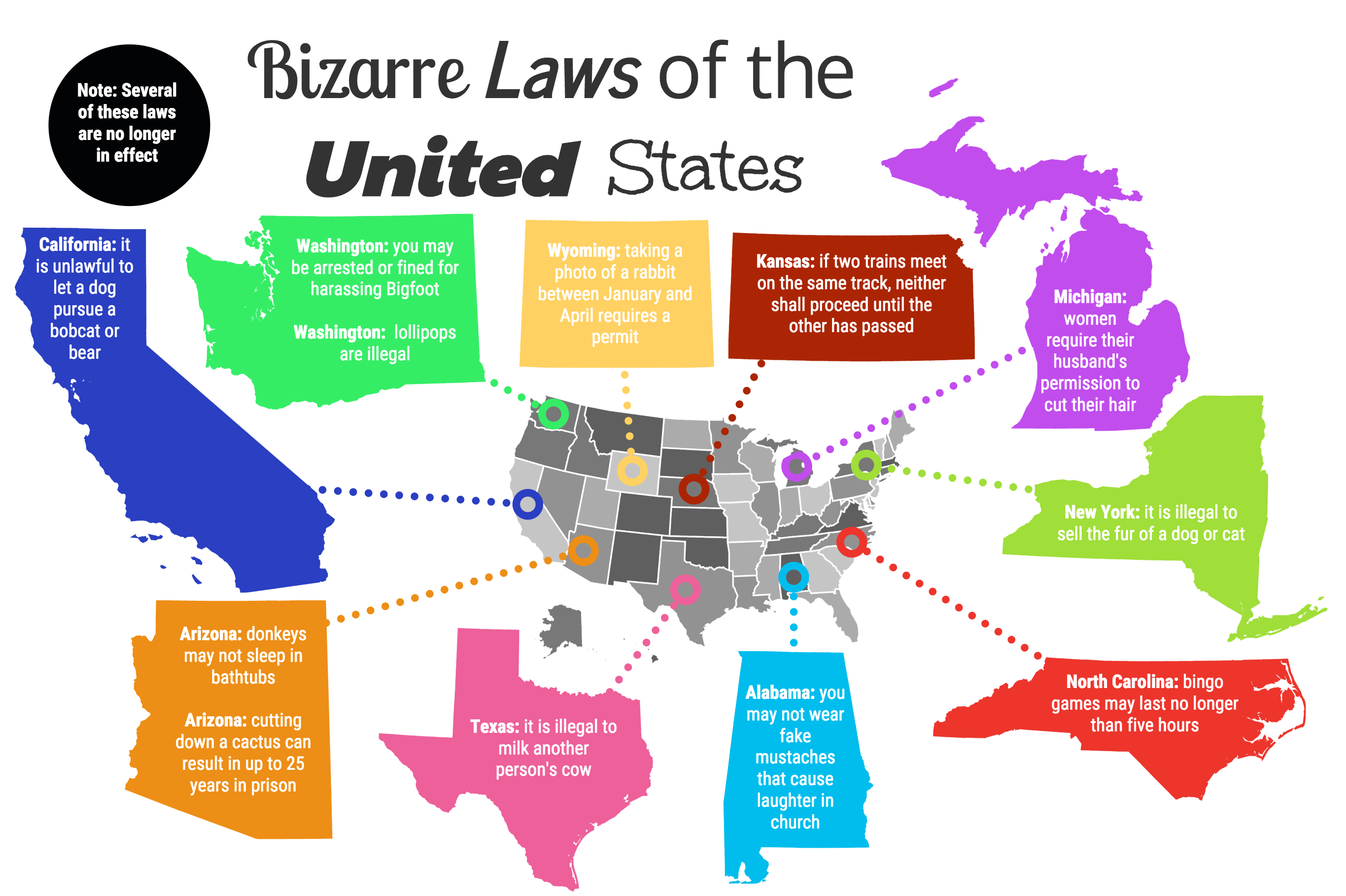Laws in the United States

The Constitution of the United States
The Constitution of the United States is the supreme law of the land and outlines the basic framework for the federal government. It was adopted in 1787 and has since been amended 27 times. The Constitution outlines the powers of the federal government, including the executive, legislative, and judicial branches, and the rights of citizens, including the freedom of speech, religion, and the press.
Federal Laws
Federal laws are laws that are passed by Congress and signed by the President. These laws apply to the entire country and are enforced by federal agencies, such as the FBI and the Department of Justice. Examples of federal laws include the Civil Rights Act, the Americans with Disabilities Act, and the Clean Air Act.
State Laws
State laws are laws that are passed by state legislatures and enforced by state agencies. These laws vary from state to state and can cover a wide range of issues, including education, healthcare, and criminal justice. Examples of state laws include the California Consumer Privacy Act, the Texas Voter ID Law, and the New York State Labor Law.
The Court System
The court system in the United States is made up of federal and state courts. The federal court system includes the Supreme Court, which is the highest court in the land, as well as appellate and district courts. State court systems vary, but typically include trial courts, appellate courts, and supreme courts.
The Criminal Justice System
The criminal justice system in the United States is designed to punish individuals who have committed crimes and protect society from further harm. This system includes law enforcement agencies, such as the police and FBI, as well as courts, prosecutors, and defense attorneys. The criminal justice system is complex and can vary from state to state.
Expanded Keyword: Civil Rights
What are civil rights?
Civil rights are the rights that every individual has under the law. These rights are protected by the Constitution and include the freedom of speech, religion, and the press, as well as the right to due process of law and equal protection under the law.
What is the Civil Rights Act?
The Civil Rights Act is a federal law that was passed in 1964. It prohibits discrimination based on race, color, religion, sex, or national origin in employment, education, and public accommodations.
What is the Voting Rights Act?
The Voting Rights Act is a federal law that was passed in 1965. It prohibits discrimination in voting based on race or color and has been instrumental in protecting the voting rights of minorities in the United States.
What is affirmative action?
Affirmative action is a policy that is designed to promote equal opportunities for members of underrepresented groups. It is often used in education and employment to ensure that individuals from diverse backgrounds have equal opportunities to succeed.
While the legal system in the United States is complex, it is designed to protect individual rights and ensure that justice is served. It is important for all citizens to understand their rights and the laws that govern their actions. By doing so, we can work together to create a more just and equitable society for all.

Pros and Cons of the Legal System in the United States
Pros
- Protects individual rights
- Ensures justice is served
- Promotes democracy and freedom
- Provides a framework for federal and state governments
Cons
- Can be complex and difficult to navigate
- May be biased towards those with more resources
- Overcrowding in prisons and lack of rehabilitation programs
- May not always serve the needs of marginalized communities
Despite its flaws, the legal system in the United States is an important part of our democracy and is essential for protecting individual rights and ensuring justice is served.
Conclusion
The legal system in the United States is complex, but it is designed to ensure that justice is served and individual rights are protected. By understanding our rights and the laws that govern our actions, we can work together to create a more just and equitable society for all.
FAQ
What is the difference between federal and state laws?
Federal laws apply to the entire country and are enforced by federal agencies, while state laws vary from state to state and are enforced by state agencies.
What is the role of the Supreme Court?
The Supreme Court is the highest court in the land and is responsible for interpreting the Constitution and ensuring that laws are constitutional.
What is the purpose of the criminal justice system?
The criminal justice system is designed to punish individuals who have committed crimes and protect society from further harm.
What are civil rights?
Civil rights are the rights that every individual has under the law, including the freedom of speech, religion, and the press, as well as the right to due process of law and equal protection under the law.
